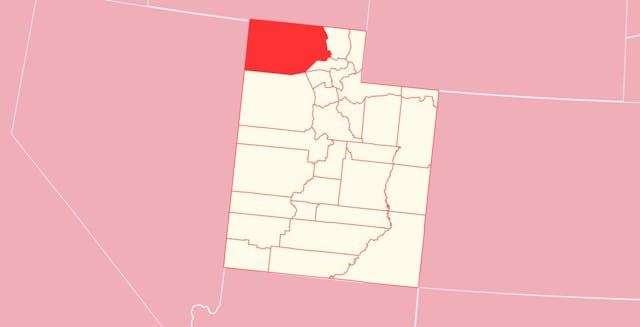Rehabs in Box Elder
Box Elder county is located in the northwest of Utah. With a population of 54,950, it borders the state of Nevada in the west and Idaho in the north.
Its seat Brigham City is a small and safe place to live. It is known for its historical sites and a celebration called Peach Days.
Anyway, the area could not stand aside from the problem of substance misuse. The local healthcare authorities list it as a top health issue just behind mental health.
One searching for the Box Elder county rehabs can find several options here. This article will reveal how to get assistance to overcome addiction.
Addiction Statistics
The situation with substance misuse is complicated here. In 2015 Utah ranked 9th in the US for drug poisoning deaths. According to the local health department, this region is an area of concern as well. For instance, the rate in Brigham City for drug poisoning deaths is 26.9 per 100,000 population.
Moreover, the latest survey shows many people are in need of help. In 2016 the local health district served 975 clients for addiction treatment. Specifically, 88 of them were youth.
The most commonly used substances here are:
- Alcohol
- Marijuana
- Methamphetamines
For this reason, the authorities have set up a prevention plan. Its main goal is to reduce the number of adolescents who use substances. Additionally, it is to increase the number of admissions to treatment facilities. Thus, those suffering from addiction have to find rehabs in Box Elder County.
Stages of Rehabilitation
There are hundreds of drug and alcohol rehabs in Utah. They include detox, inpatient, and outpatient centers. They provide a wide range of services.
Each patient usually has an individual treatment plan based on his specific needs. The role of the admission specialist is crucial here.
Evaluation
First, a person has to pass an evaluation. The medical team provides screening of patients. In addition, he/she should take blood and urine tests. Equally important is to assess psychological conditions.
Detox
Detoxification is an important part of recovery. It’s a method to abolish a substance of dependence from the body. In other words, it helps get rid of drugs without harming your body. It has to be done under medical supervision.
However, everyone experiences it differently. It can take months to get through withdrawal symptoms. In general, trying detox at home can be dangerous and even deadly. Moreover, this may lead to seizures and dehydration. Hence, it is important to choose a certified specialist not to make mistakes.
Inpatient
In fact, inpatient rehab provides long-term recovery services. The clinics differ depending on location, staff expertise, amenities, and therapies offered. However, they all offer a recovery under around-the-clock medical supervision.
The length of the programs depends on the severity of the condition. In addition, some may offer family programs. This allows family members to participate in the counseling. Such centers usually provide:
- Individual and group counseling
- Case management
- 12-step programming
- Skills-building sessions
Outpatient
An outpatient plan allows you to get treatment while being out of the clinic. The advantage is that the patient continues his daily activities. A person attends sessions throughout the week.
It frequently comes in different formats and levels of intensity. For example, an intensive outpatient program defines recovery milestones to indicate progress. This depends on the individual cases and may take several weeks. If the progress is obvious, you can decrease the commitment required per week.
One example of such a center in the area is Willard Park. The center’s programs are focused on the recovery of adolescent and their families.
Payment Options
The cost of services in a rehab varies depending on many factors. In fact, they may be quite expensive. For example, a 30-day inpatient plan may range from $5,000 to $20,000.
Luckily there are ways to receive financial support. Nevertheless, many clinics accept Medicaid-eligible individuals. Many clinics have payment assistance, including a sliding fee scale.

